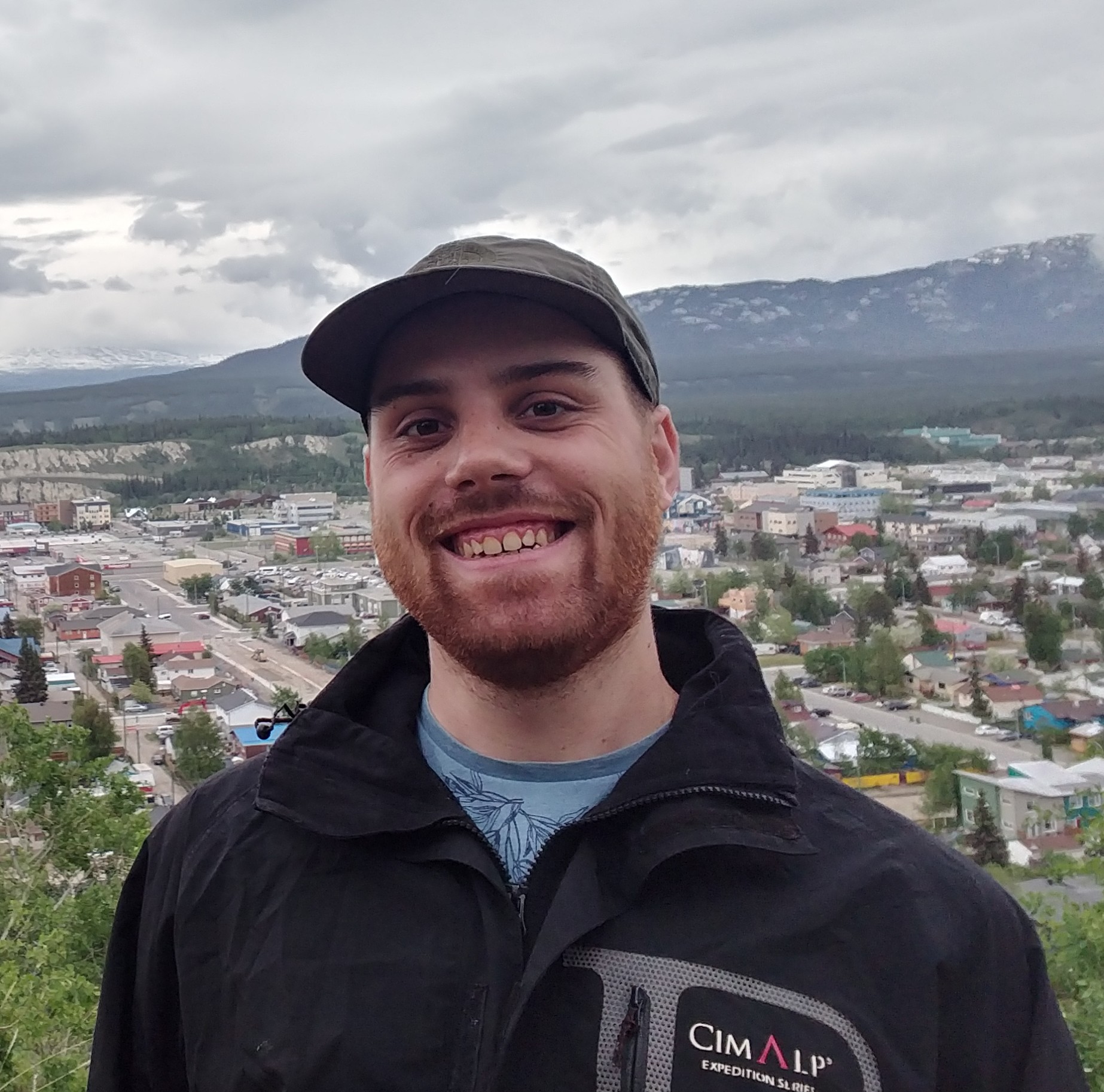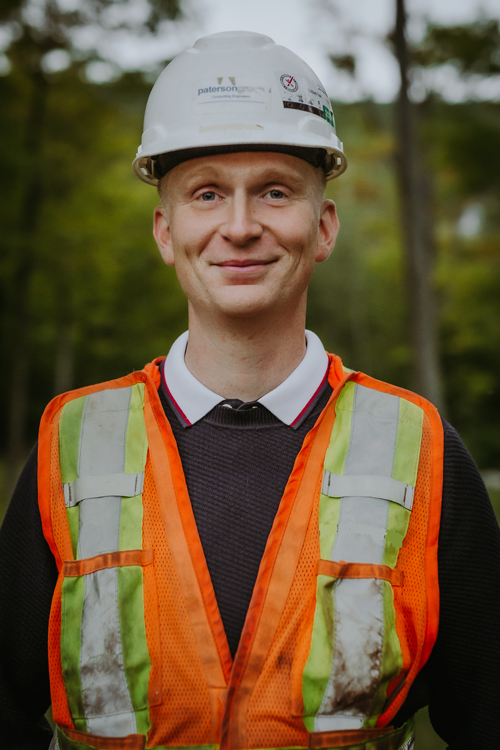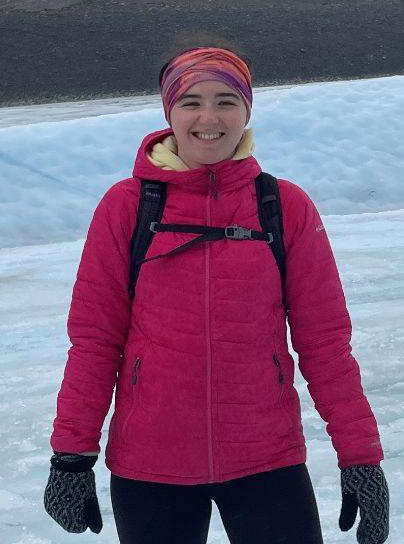 |
Natalie Arpin, PYRN President PhD student in Civil Engineering at Queen’s University in Kingston, Canada. Natalie's research focuses on the impact of changing permafrost conditions on linear infrastructure. She conducts her research on the Hudson Bay Railway in Manitoba, Canada, where she monitors the effects and distribution of frost jacking on railway bridges. |
||
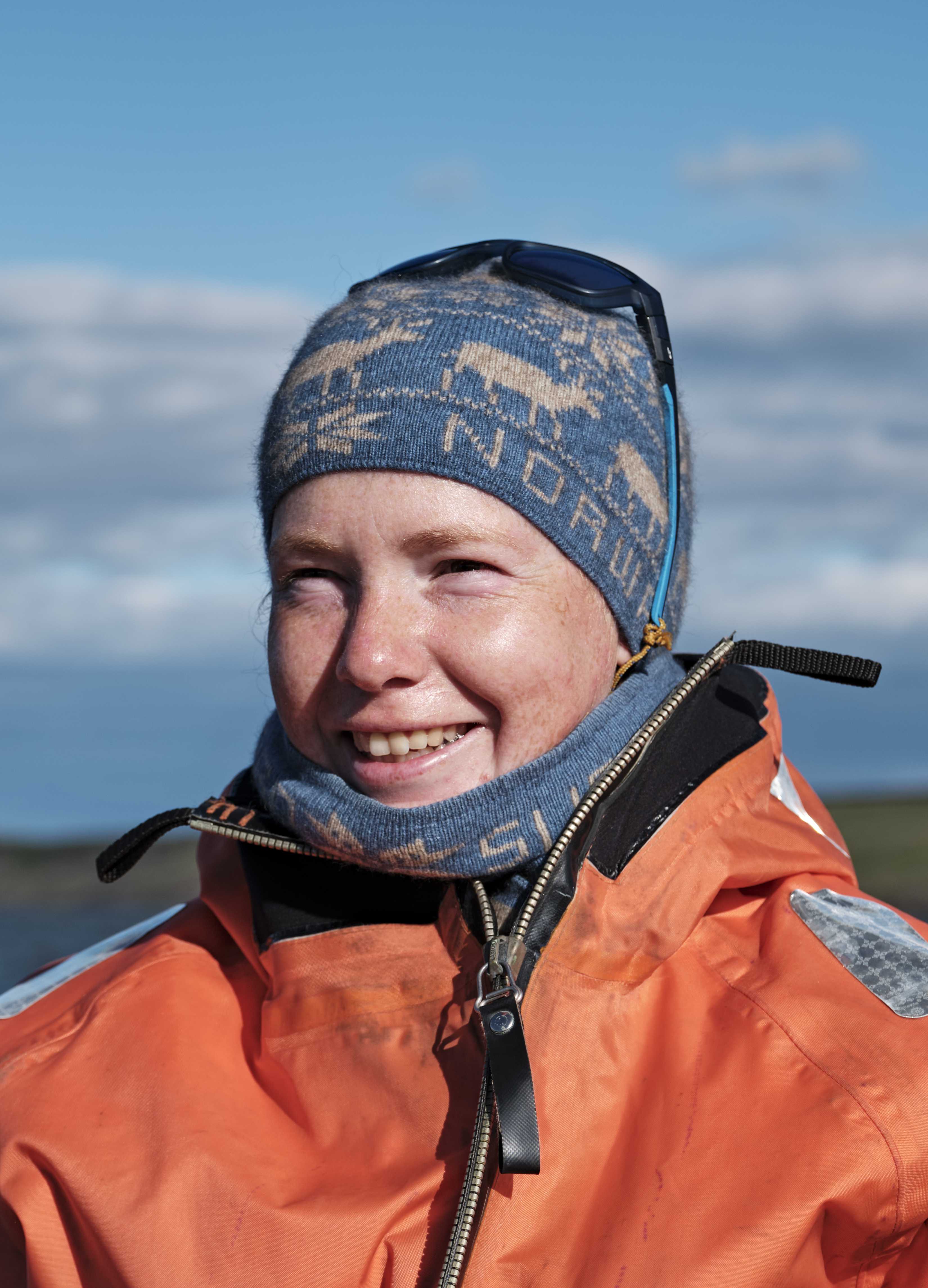 |
Saskia Eppinger, PYRN Vice-President PhD-Student at the Chair of Landslides Research, Technical University of Munich (Germany). Saskia's research focuses on arctic and alpine permafrost regions. Saskia is working in different arctic environments, focusing on retrogressive thaw slumps in Canada and Greenland. She uses geophysical methods in the field as well as complementary lab work. Saskia is PYRN-member since 2017 and currently National Correspondence for Germany. |
||
|
Bastien Charonnat, Newsletter Committee PhD candidate at École de technologie supérieure (ÉTS), Université du Québec, Montreal (Canada). Bastien's research focuses on the hydrological behavior of proglacial systems and interactions between cryospheric features in glacial valleys. He uses a multimethod approach at his field site, in the St. Elias Mts (Yukon, Canada). He also participated in field expeditions on rock glaciers in the French Alps. |
||
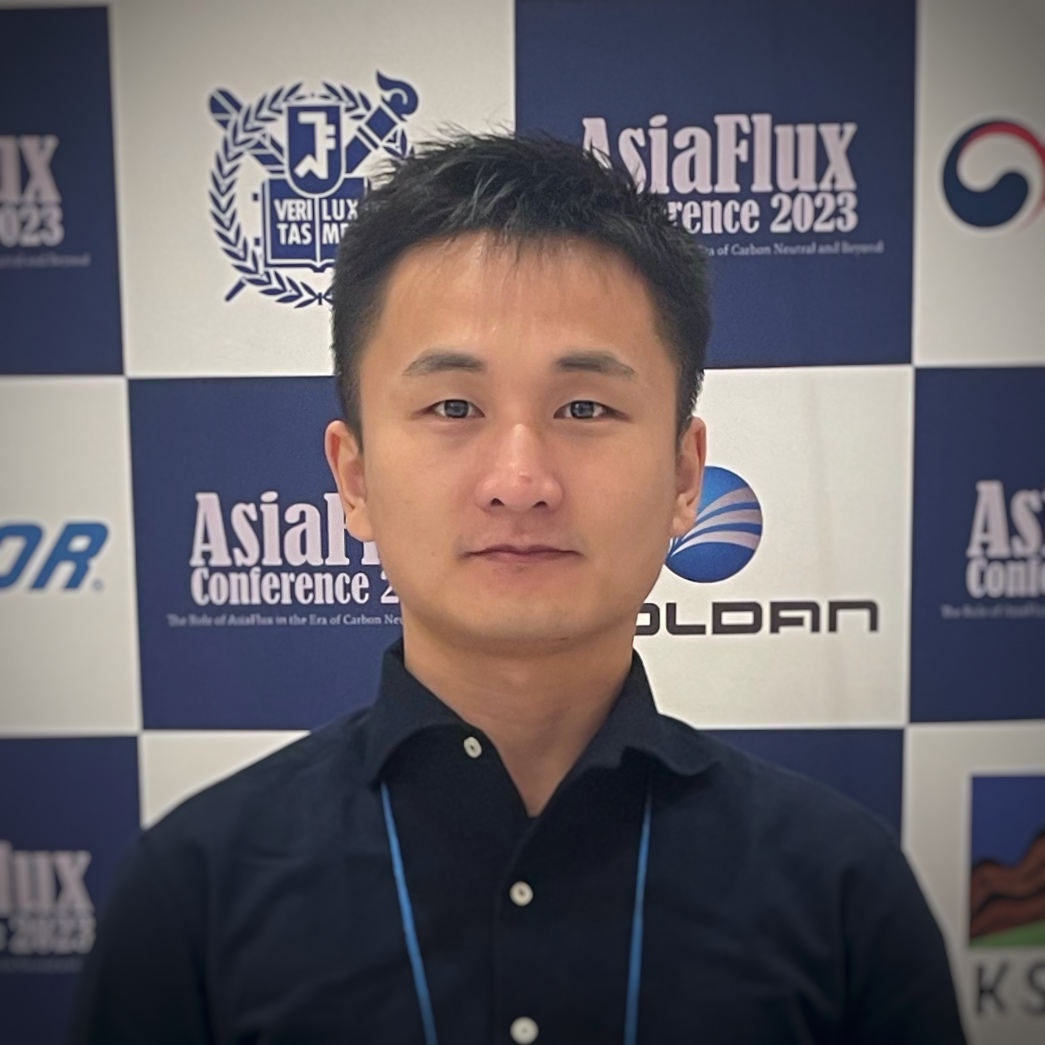 |
Zhenhai Liu, Newsletter Committee PhD candidate at the Institute of Geographic Sciences and Natural Resources Research, University of Chinese Academy of Sciences. His current research focuses on the seasonal and diurnal asymmetrical impacts of climate warming on carbon fluxes in terrestrial ecosystems of the Tibetan Plateau. He specializes in using models and remote sensing techniques to study the carbon cycle in permafrost regions. |
||
 |
Harley R. McCourt, Newsletter Committee PhD Student at Northumbria University and Newcastle University in the UK. Harley's research focuses on modelling the state and fate of permafrost through utilisation of reanalysis datasets. He has a strong background in geospatial analysis, numerical modelling, and remote sensing. In addition to his role on the PYRN ExCom, he is the Treasurer of the International Glaciological Society's Early Career Glaciologist Group and the Postgraduate Representative for Professional Geomorphology for the British Society of Geomorphology. |
||
|
Zachary MacDonald-Ducharme (Zak), Newsletter and Activities Committees M.Sc. Student at Carleton University in Ottawa, Canada. Zak's research is focussed on the effects of ground settlement from permafrost degradation and changing climate conditions. Zak works and travels on projects in the Canadian arctic as a civil engineer and is interested in developing competencies related to arctic engineering. This is his first year with PYRN and he hopes to learn more about the general field of geocryology and connect with people from different backgrounds. His current role with PYRN is as a contributor for the Newsletters and with organizing PYRN activities. |
||
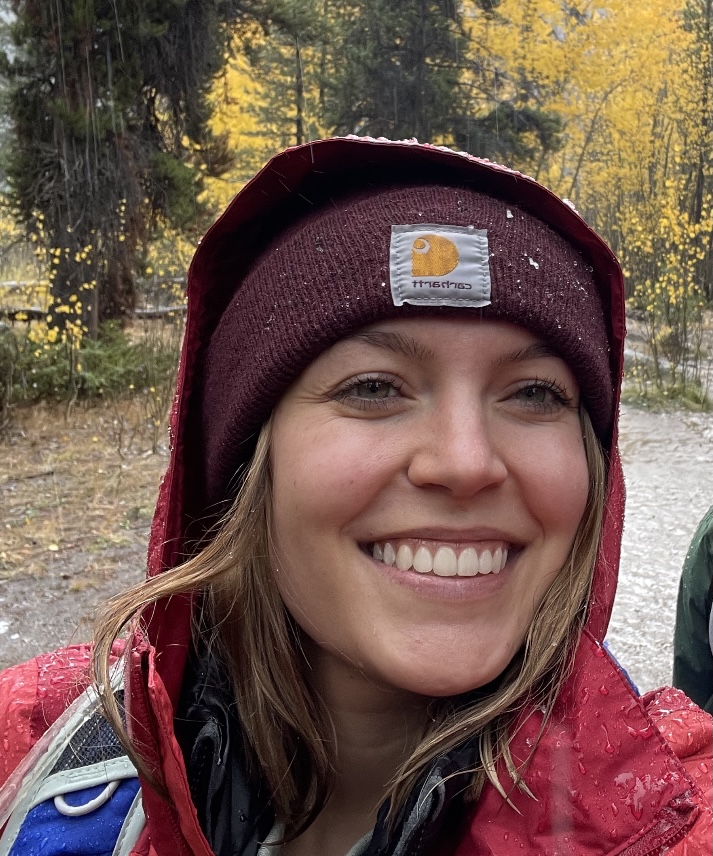 |
Hailey Webb, Activities Committee PhD candidate at the University of Colorado Boulder, USA. Hailey's research focuses on the permafrost carbon feedback, abrupt thaw processes, and broad scale landscape change across the Arctic and boreal regions. Most of her study sites are in interior Alaska situated among colorful bogs and majestic black spruce forests. Hailey is passionate about science communication efforts and getting people excited about permafrost. |
||
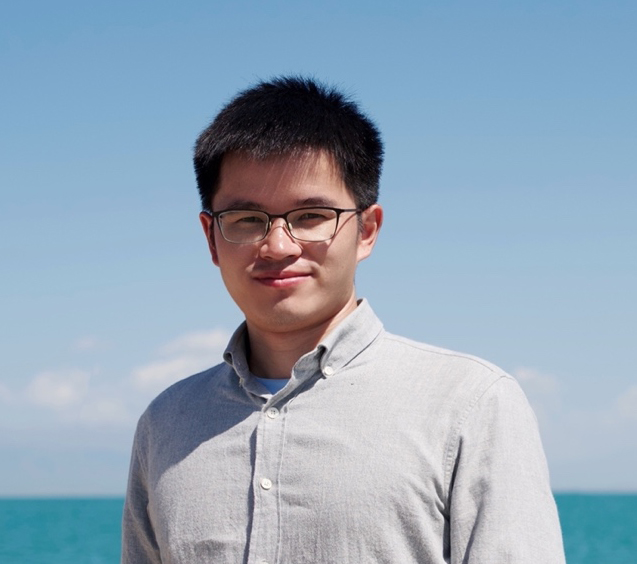 |
Chunlin Song, Activities Committee Chunlin’s research focuses on the hydrology and biogeochemistry of the cryosphere.His research delves into the patterns, processes, mechanisms, and impacts of biogeochemical cycles and hydrological dynamics within cryospheric rivers, streams, ponds, and lakes. He is particularly interested in the transport and transformation of terrestrial carbon in aquatic ecosystems under the influence of climate change in permafrost regions, as well as greenhouse gas emissions from cryospheric inland waters. He also investigates the impacts and mechanisms of permafrost changes on cryo-hydrological processes. To address these research questions, he employs a multifaceted approach that includes field observations, laboratory experiments, isotope analysis, spatial upscaling, and statistical modeling. His fieldwork often takes him to the Qinghai-Tibet Plateau and the mountainous regions of southwest China. Chunlin received his PhD from the Institute of Mountain Hazards and Environment, Chinese Academy of Sciences and was a visiting PhD student at Yale University. He is currently affiliated with the State Key Laboratory of Hydraulics and Mountain River Engineering, Sichuan University, China. |
||
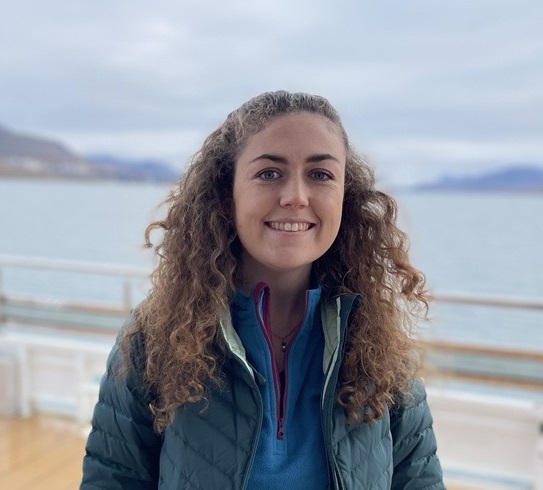 |
Charlotte Pearson, Activities and Social Media Committees PhD student at the University of Hertfordshire in the UK. Lottie's research focuses on quantifying the controlling processes of active layer detachments in the Brooks Range, Alaska and using these to develop an automated classification in Google Earth Engine. While her work primarily involves remote sensing techniques, Lottie also has Arctic fieldwork experience in the Northwest Territories, Canada, and Svalbard. |
||
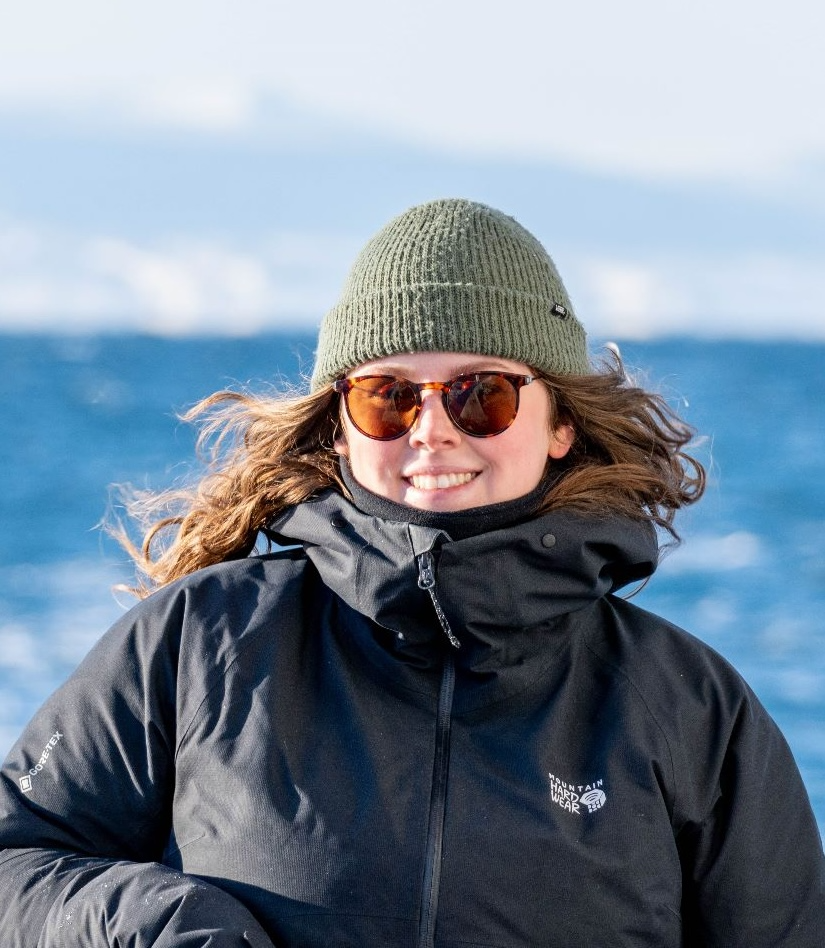 |
Emma Cameron, Activities and social media committees PhD student at the Institute of Geosystems and Bioindication, Technische Universität Braunschweig (Germany). Emma's research focuses on the use of paleoindicators in sediment cores to reconstruct the environmental history of Arctic lakes. She recently completed her MSc at Université Laval studying extreme Arctic lakes on Northern Ellesmere Island. Her PhD project will investigate how lakes in the Mackenzie Delta region of the Northwest Territories have been affected by the interacting effects of climate change and legacy contaminants from oil and gas exploration, as part of the larger "ThinIce" project. She will reconstruct the recent histories of lakes near drilling mud sumps, as well as new ponds forming directly on the sumps and in borrow pits excavated for the construction of the Inuvik-Tuktoyaktuk Highway. |
||
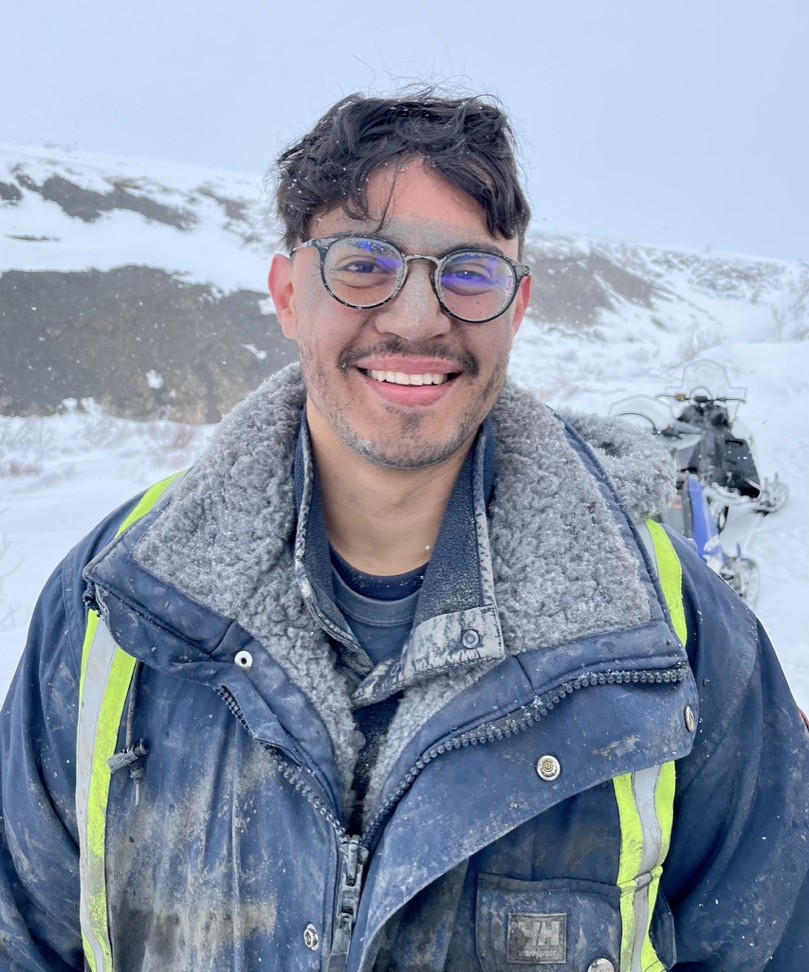 |
Alejandro Alvarez, Treasurer PhD Student at the University of Alberta, Edmonton, Canada Alejandro’s primary research focuses on continuous, ice-rich permafrost and ground hazards along the newly developed Inuvik-Tuktoyaktuk Highway in collaboration with the NWT Geological Survey. Hopefully, Alejandro’s work will aid the NWT Department of Infrastructure in highlighting and establishing a geological permafrost map illustrating underlying features susceptible to thaw along the Inuvik-Tuktoyaktuk Highway. Lastly, Alejandro has been fortunate enough to have three years of experience across the Yukon and Northwest Territories focused on the characterization of permafrost in field and laboratory settings. |
||
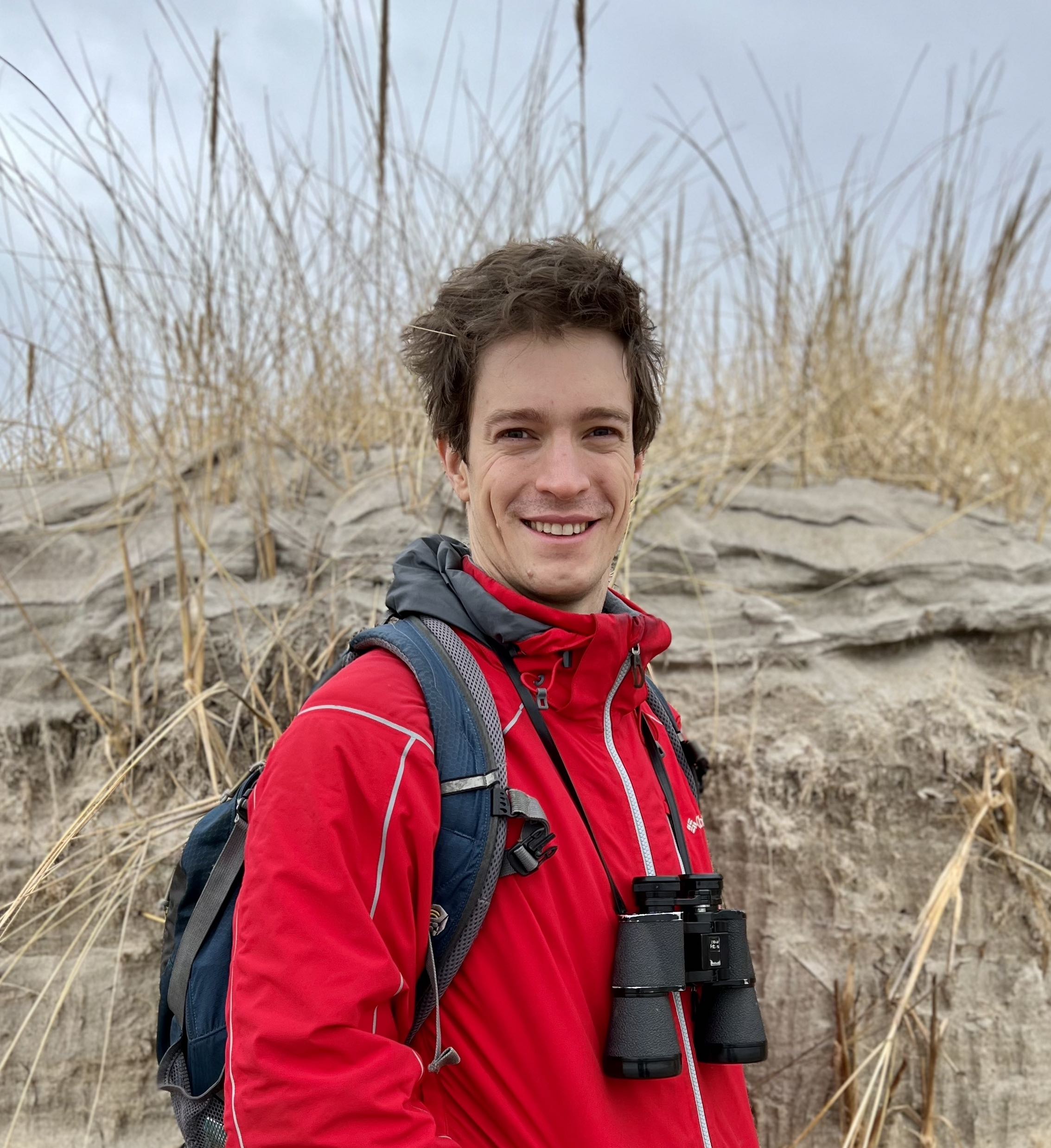 |
Roger Creel, Treasurer, Secretary Geophysicist with focuses on sea-level change in the past and future and the interactions between sea level and permafrost, ice sheets, coastlines, and continental hydrology. Roger’s work in geoscience began at Amherst College, where he wrote a thesis on diagenesis and dolomitization in Ordovician-Silurian carbonates in the Great Basin. After Amherst, he conducted geochemical and sedimentological research at MIT and Washington University in Saint Louis while dancing professionally with the Louisville Ballet. In 2018, he began a PhD at Columbia University's Lamont Doherty Earth Observatory with Dr. Jacqueline Austermann. Roger’s research at Columbia concerned sea-level change during past warm periods, how sea level affects subsea permafrost, and what we can learn about ice sheet stability from sea-level records. He defended his dissertation in October 2023, then moved to the Woods Hole Oceanographic Institution to begin a postdoctoral scholarship. At Woods Hole, Roger is studying how continental hydrology and human land use influence coastal ocean dynamic sea level, and the compound effects of sea-level, permafrost subsidence, and land hydrology on Arctic coastlines. |
||
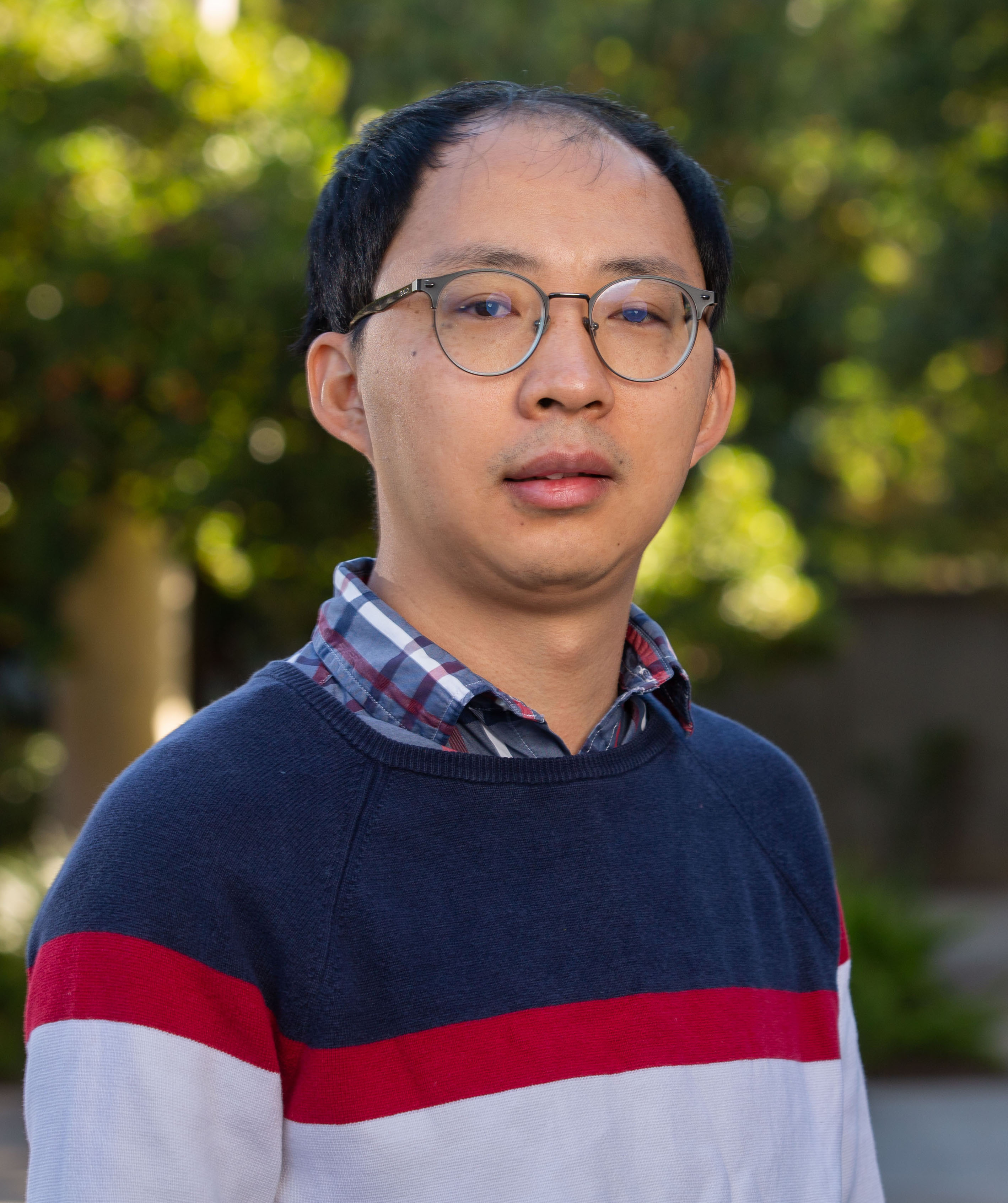 |
Lin Chen, Northern Research Coordinator Lin Chen began his career as a researcher at the Northwest Institute of Eco-Environment and Resources, Chinese Academy of Sciences, in January 2024. Before that, he completed his postdoctoral research at the University of California-Riverside (UCR) and his PhD at the University of Montreal (UdeM). He also received an Outstanding Postdoctoral Research Award from the UCR and an Alma mater Excellence Award from the UdeM. Moreover, he had a visiting position at USGS-Menlo Park (supported by FRQNT Internship grant) and McGill University during his PhD study. He originally trained as a hydraulic engineer. His research interests include permafrost modeling, surface water-groundwater interactions, solute transport, surface energy balance, cold-region infrastructure, and computationally efficient algorithms. Additionally, he serves on the Executive Committee of PYRN 2022-26, is co-chair of APECS Council 2023-24, and currently is the Secretariat – Executive Director of the IPA 2024-28. He is also on the ECR Editorial Board of the journal CRST 2023-25. He was the convenor for session 8A at ICOP2024 and C021 at AGU2023. |
||
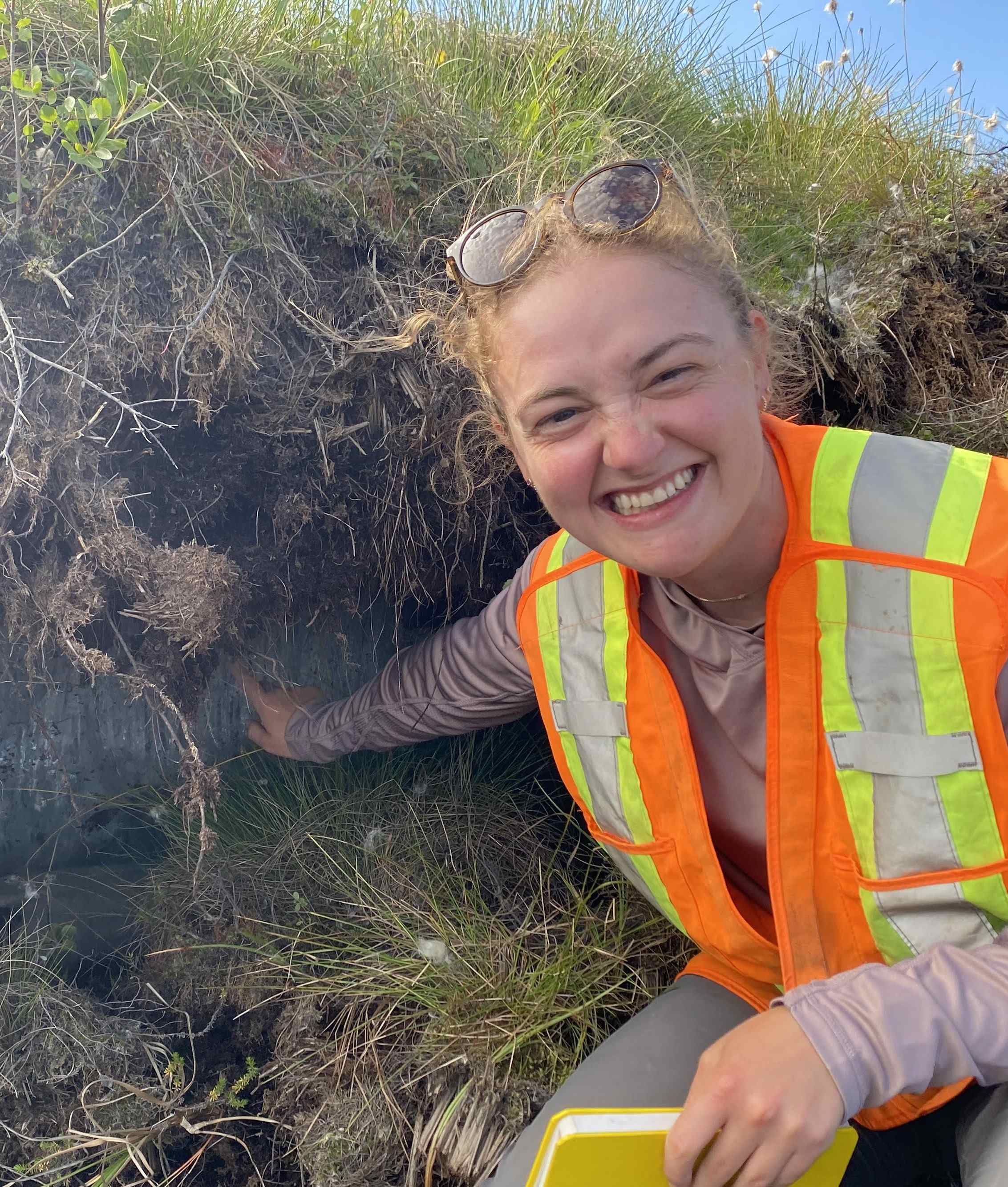 |
Rachel Lackey, Northern Research Coordinator PhD student at McGill University supervised by Dr. Jeffrey McKenzie and Dr. Stephanie Wright (Queen’s U) with a background in geological and water resource engineering. Rachel's experience lies in fractured and porous hydrogeology and geochemical/isotopic tracers. The goal of her research is to use sustainable methodologies to better understand the impacts climate change is having on groundwater in traditionally permafrost characterized regions. Her current research is examining the effects of changing permafrost conditions on groundwater vulnerability in a northern community. It is Rachel’s hope that her research will contribute to a greater understanding of the impacts of climate change on northern groundwater resources and help increase northern communities’ preparedness and resilience to these changes. Rachel holds a BASc in Geological Engineering (2016 – 2021) at Queen’s University, Canada and a MASc in Water Resource Engineering (2021 – 2023) at University of Guelph, Canada. Upon the completion of her PhD, she hopes to continue in northern groundwater research in government, industry, or academia. |
||
 |
Soumitra Sakhalkar, Conferences Chair PhD student at the University of Alaska Fairbanks, USA. Soumitra's research is focused on the terrain instability caused by the permafrost degradation on the North Slope of Alaska. He uses geophysical measurements such as displacement sensors, GNSS and other field validation strategies to upscale with the InSAR data that will soon be available through the NISAR L-band satellite. His long-term goal is communicate the research the wider public and incorporate the traditional knowledge of the lands he studies, to understand how the permafrost landscape is changing and how this has been impacting human, plant as well as animal life. |
||
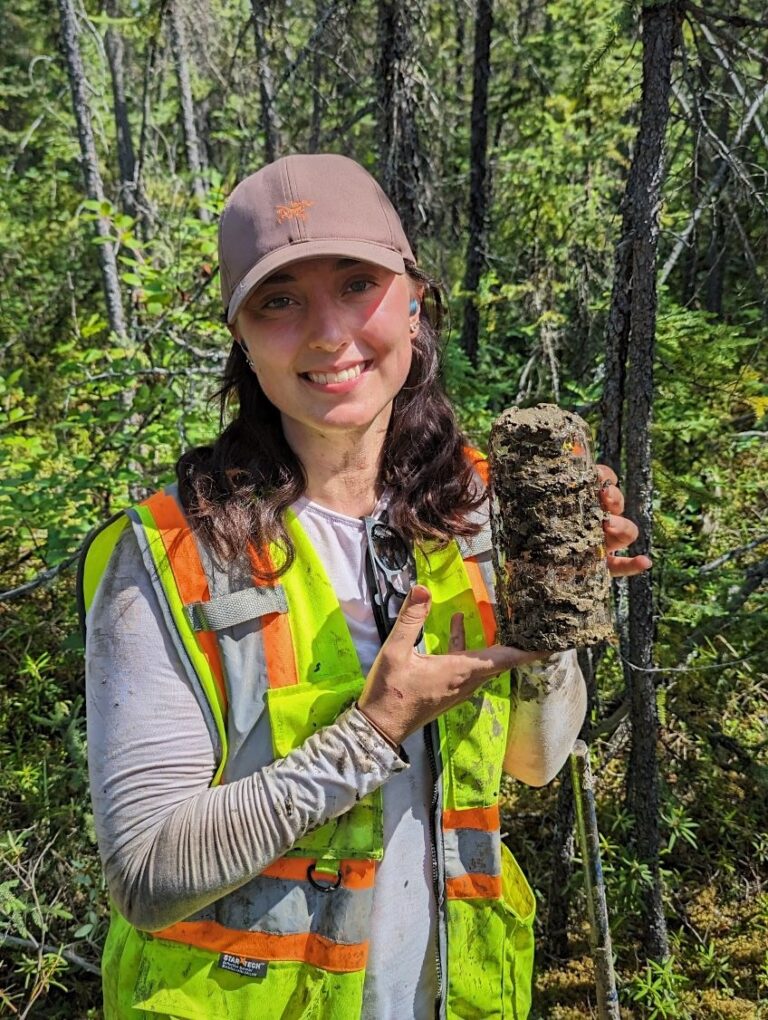 |
Michelle Landry, Webmaster MSc. student in the Department of Earth and Atmospheric Sciences at the University of Alberta, Canada. Michelle's research focuses on characterizing drilling-waste sump performance in discontinuous permafrost in the central Mackenzie Valley, Northwest Territories, Canada. Michelle has worked in over 30 Northern communities across Canada over the past 6 years and is an active member of the Canadian Permafrost Association. Her role in PYRN is to co-coordinate the website and online initiatives, a role which she joined in 2024. |
||
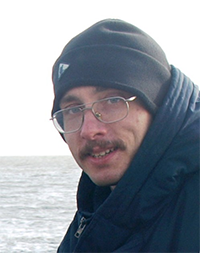 |
Denis Frolov, Webmaster Denis is a research fellow in the laboratory of avalanches and mudflows at Faculty of Geography, Lomonosov Moscow State University. Denis' research interests include snow cover and climatic spacial and time alterations as well as regularities of snow cover formation and the processes of heat and mass transport in snow cover and on the boundary with ground while ground freezing.Participated in expeditions to Caucasus, New Siberian islands and other parts of Russian Arctic. He is a webmaster of the new PYRN website. |
||
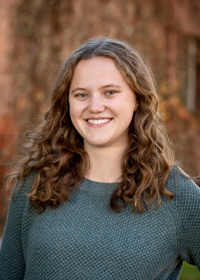 |
Emma Lathrop, Outgoing President PhD student at Northern Arizona University, USA Her research is focused on quantifying the magnitude and mechanisms of soil carbon loss in permafrost ecosystems following warming. Emma is interested in quantifying the timing and magnitude of the permafrost carbon feedback, specifically in understanding how susceptible carbon in deep soils is to decomposition and emission to the atmosphere as greenhouse gas. A changing arctic impacts everyone and she strives to improve how science is communicated to inform policy makers and the public. Emma is committed to promoting a culture of inclusion in the field and lab. In addition to her role on PYRN ExComm, she serves as the PYRN representative to the US Permafrost Association’s Board of Directors. |

